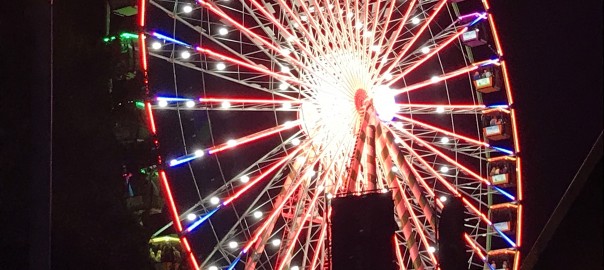I wrote in a prior newsletter about nostalgia it appeared to me as our society moves at an increasingly accelerated pace, more people want to go back to a simpler time. Personal nostalgia is defined as “a wistful or excessively sentimental yearning for return to or of some past period or irrecoverable condition.” The state fair coming up at the end of the month is for me is a time of great nostalgia. I have so many good memories of going with my grandparents. I just danced to a band I danced to in college. This nostaglia trip was one of the hightlights of the summer. I felt happier the whole next day!
A recent article from Santa Clara University and Psychology today has shown an even greater increase in nostaglia since my 2016 newsletter. It describes nostalgia as a way of coping with distress by temporarily escaping the pain of the present. Pain from the pandemic, increased violent attacks that highlight racism, and a series of fires and weather disaster combined with political division and intense political strife. People have been feeling more lonely and isolated. Nostalgia as a coping mechanism can help people have a more positive mood, feeling more socially connected, and having a greater sense that their lives are meaningful.
The first known use of the work was originally by a Swiss physician Johannes Hofer. He describe the condition in his 1688 medical dissertation. It was thought of as disease similar to paranoia, except rather than perceived persecution longing was the issue.
Nostalgia is seen in a more positive light now. Though it is often triggered by negative feelings, it results in increasing one’s mood and heightening positive emotions. Krystine Batcho studied nostalgia also with the conclusion that the strategies that are likely among nostalgia prone people often lead to benefits during stressful times. Nostalgia can be connected to more focus on coping strategies and implementing them. Her research finds that people who are prone to nostalgia excel at maintaining personal relationships and choose healthy, social ways of coping with their troubles. “Nostalgia is helpful,” she says. “You can stumble upon the times you overcame obstacles and realize that you are capable of overcoming new problems, too.”
You might get more nostagic once the weather is colder. There is data from Xinyue Zhou of Sun Yat-Sen University in China. By tracking students it was found feelings of nostalgia were more common on cold days. The researchers also found that people in a cool room (68 degrees Fahrenheit) were more likely to nostalgize than people in warmer rooms.
Researchers now talk about historical nostalgia where a distant past is perceived as preferable to the present. The usefulness of nostalgia changes with age, according to Erica Hepper, a psychologist at the University of Surrey in England. She and her colleagues have found that nostalgia levels are not just high among more vintage people. It is high among young adults, then dips in middle age. “Nostalgia helps us deal with transitions,” Dr. Hepper says. “The young adults are just moving away from home and or starting their first jobs, so they fall back on memories of family Christmases, pets and friends in school.”
